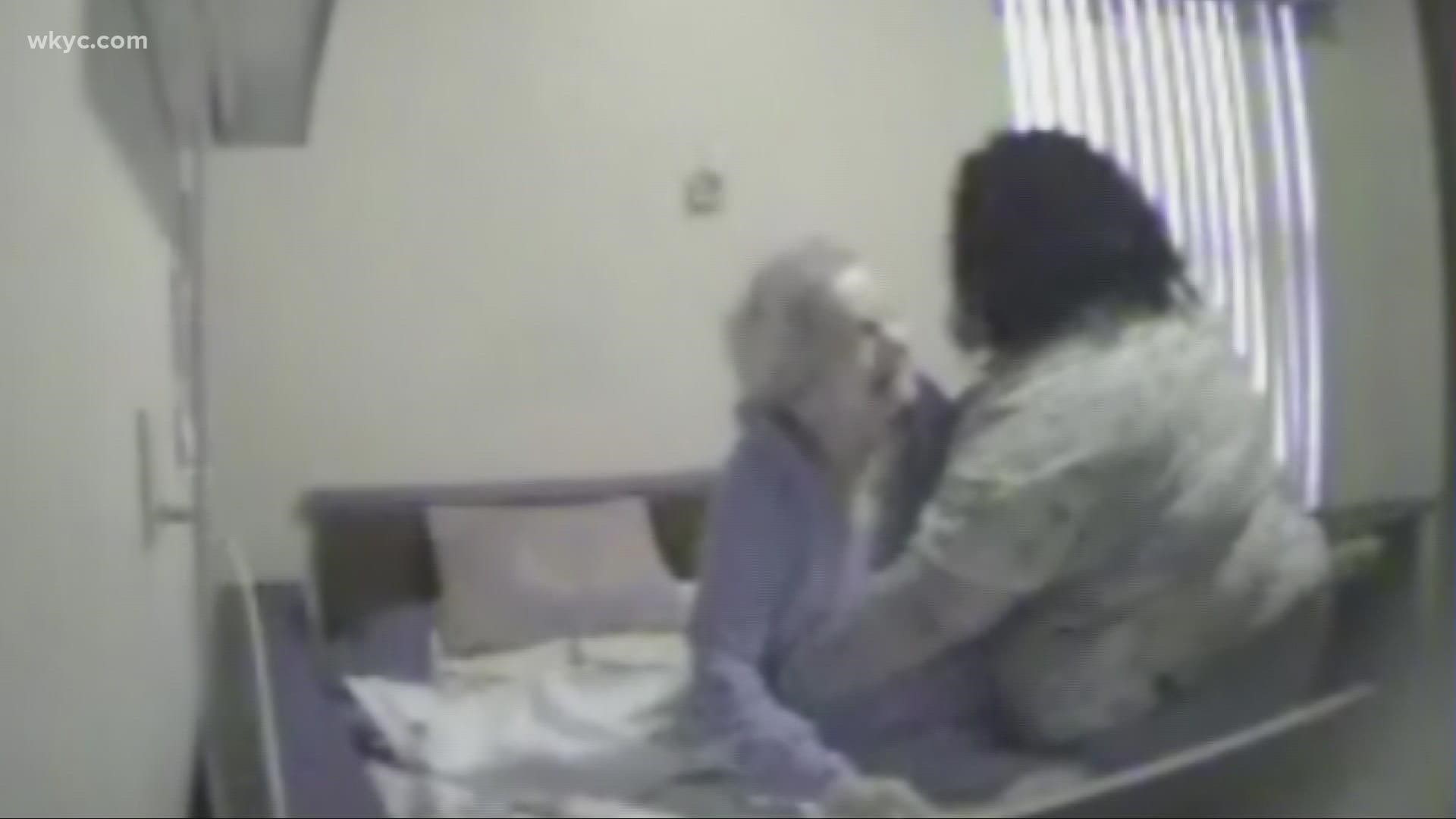CLEVELAND — A new level of transparency begins Wednesday in Ohio nursing homes: Cameras in residents' rooms.
It's called Esther's Law, and it's been in the works for nearly a decade by a man who caught abuse first-hand with a hidden camera.
"The cameras are not to catch abuse," Piskor told 3News. "The cameras are to stop abuse."
Video surveilled by a hidden camera is what fueled a fire in Piskor. The video showed his mother, Esther, being abused by multiple staff members while she was living in a MetroHealth nursing home.
"We caught about six weeks of abuse," Piskor said.
His initiative to uncover his mother's mistreatment resulted in two aides jailed, another three fired, and three more disciplined.
"It’s something that I've been fighting for for 10 years to try and get this law passed," Piskor explained.
"We want the camera out in the open," Piskor said. "We want everyone to see the camera."
The law requires:
- Residents to pay for and install the cameras.
- A sign present upon entering, giving notice of the surveillance.
- Consent to be given by any other resident in the room.
"There is a little bit of apprehension, since it is something new," Pete Van Runkle, executive director of the Ohio Health Care Association, stated.
Van Runkle believes this concern comes from the "Big Brother" oversight. However, it also serves as a layer of accountability.
"Knowing that you're going to be filmed or recorded, that would put people — anyone who might be prone to doing something inappropriate — it would put them on notice," he said. "If it prevents one incident, you know, it's worth it."
After months on end of isolation due to family and friends being banned from visiting nursing homes because of the pandemic, technology became an integral means of communication. For Esther and the Piskor family, this law mean much more than that.
"If I would've had this law, I mean, my mother would have never had been abused," Piskor lamented. "Hopefully this is help other families from stopping this from happening."
Van Runkle said there are some questions in the law about what kind of cameras will be allowed, such as two-way communication cameras or solely surveillance cameras. Piskor said he's hoping to work with legislators to make some amendments to the law in the next General Assembly.

